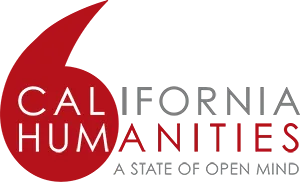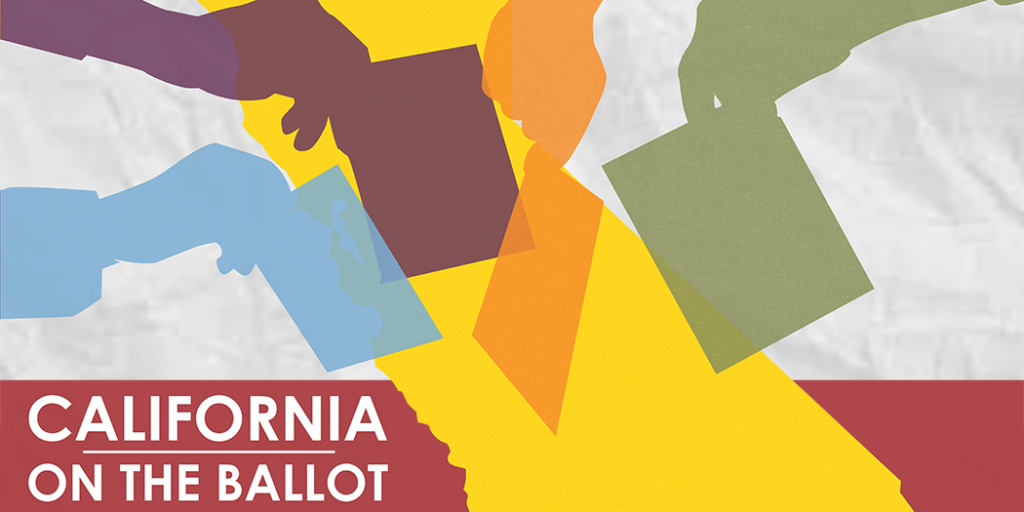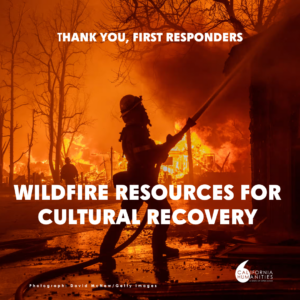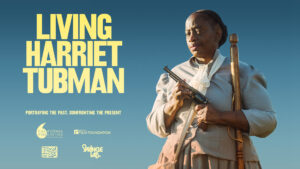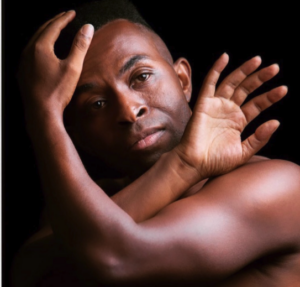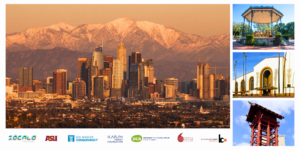California’s archives are kept in quiet rooms, inside grand and simple buildings, private and public collections. But for the last year, California archives have been closed to the public due to COVID-19, leaving many researchers nostalgic for in-person research and heightening the need for digital access. As California Humanities planned our free online event series, California on the Ballot, we approached several state archives to ask if they would be interested in sharing California elections artifacts. To our delight, many archivists and the historian and researcher Susan D. Anderson signed on to open their collections to us – if not in person – then virtually.
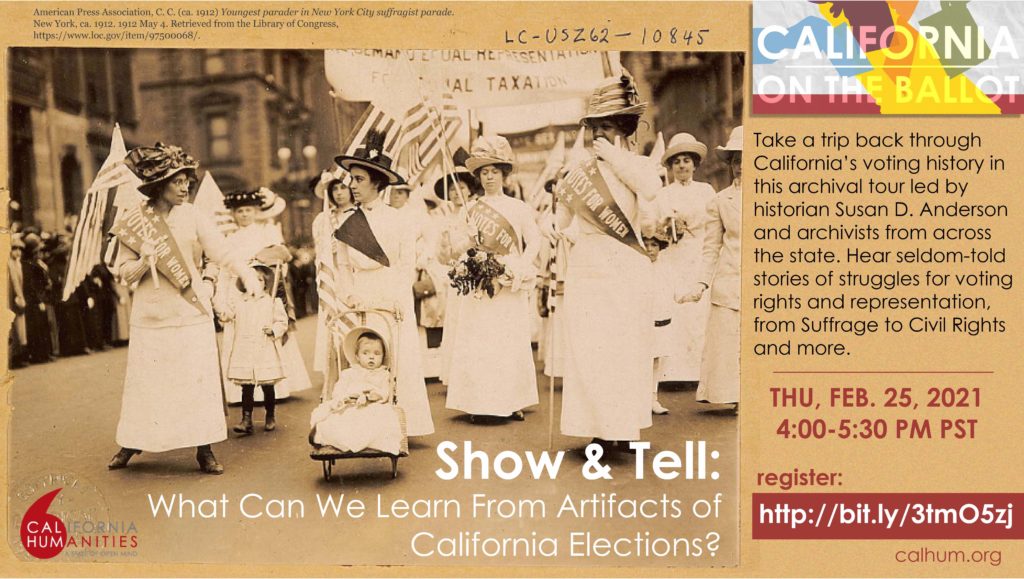
On Thursday, February 25 at 4 pm, California Humanities and historian Susan D. Anderson invite you to virtually visit with five archivists from up and down the state, as each tells the story of one artifact from their electoral collections.
Angela Brinskele, June L. Mazer Lesbian Archives
Frances Kaplan, California Historical Society
Sean Dickerson, African American Museum & Archive at Oakland
Tamara Martin, California State Archives Xaviera Flores
Xaviera Flores, UCLA Chicano Studies Research Center
As a sneak peek, Frances Kaplan of California Historical Society shares a book published in 1911. Selina Solomons was born into a Jewish family in San Francisco. As a working woman, she saw the need to bring working-class women into the suffrage movement. In 1912 she wrote a firsthand account of the campaign, titled “How We Won the Vote in California: A True Story of the Campaign of 1911.
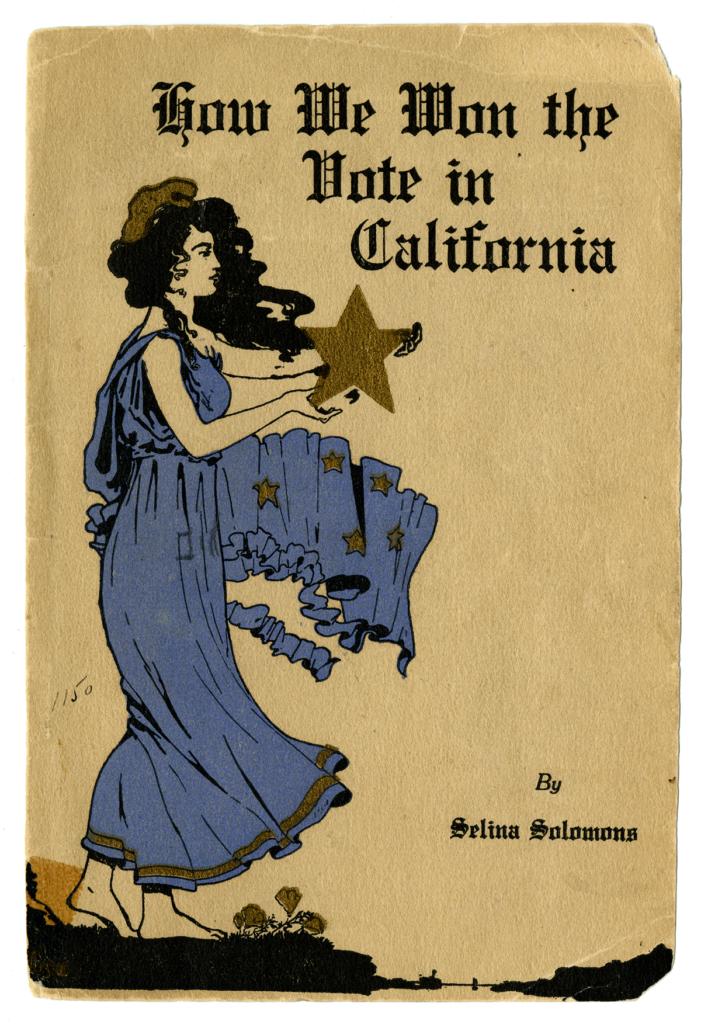
California Humanities is excited to share the schedule for four free, online California on the Ballot events in March and April, each exploring the past, present, and future of our electoral models.
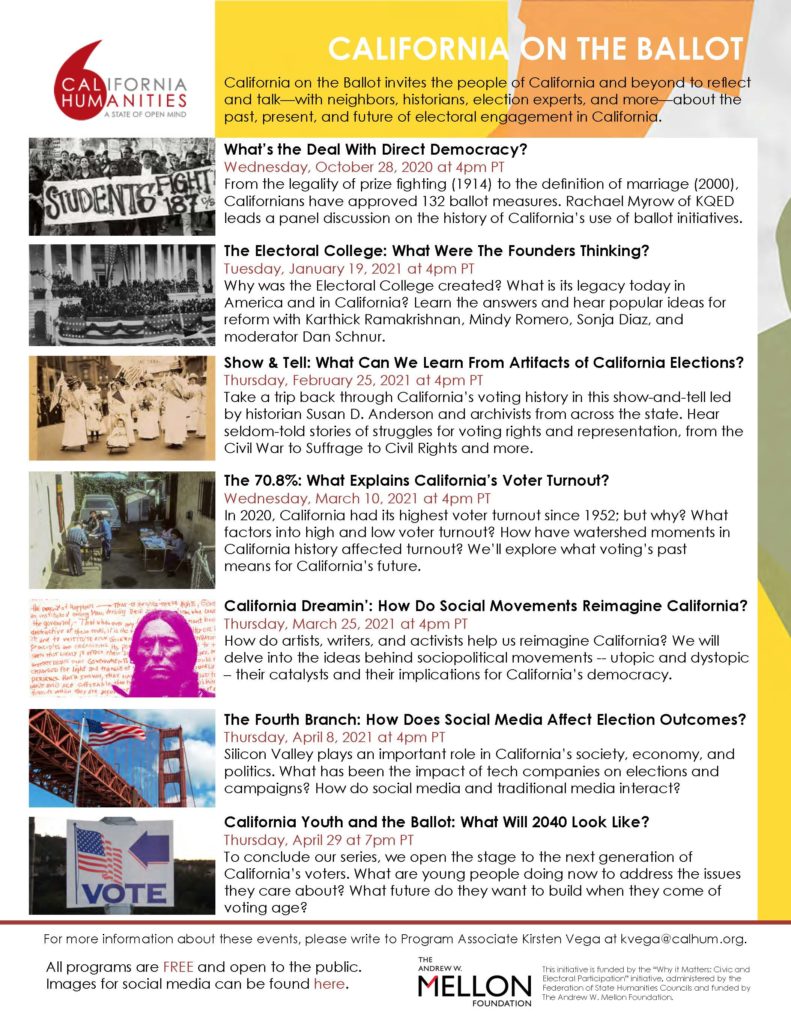
On March 10 at 4 pm, our next program, The 70.8%: What Explains California’s Voter Turnout?, will be presented with KALW host Sonia Narang. We’ll ask why California saw its highest voter turnout since 1952 this year, and how watershed moments in California history affected turnout – and hear your questions, as well.
On Thursday, March 25 at 4 pm, we will delve into the legacy of art and culture in sociopolitical movements with California Dreamin’: How Do Social Movements Reimagine California?
To register for upcoming programs, visit: https://calhum.org/programs-initiatives/initiatives/california-on-the-ballot/.
For more information or assistance with registering for a program, please write to Program Associate Kirsten Vega at kvega@calhum.org.
Through California on the Ballot, we invite the people of California and beyond to reflect and talk—with neighbors, historians, election experts, and more—about the past, present, and future of electoral engagement in California.
This initiative is funded by the “Why it Matters: Civic and Electoral Participation” initiative, administered by the Federation of State Humanities Councils, and funded by the Andrew W. Mellon Foundation.
